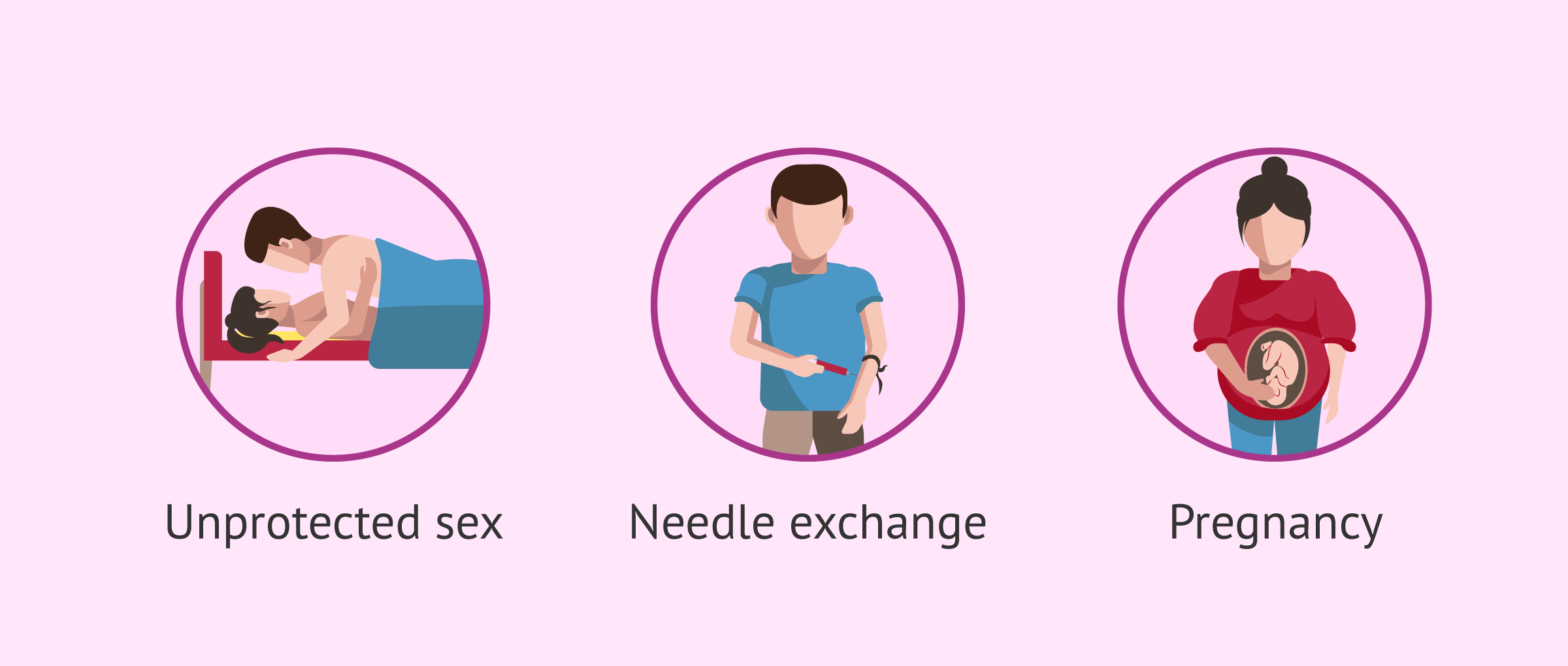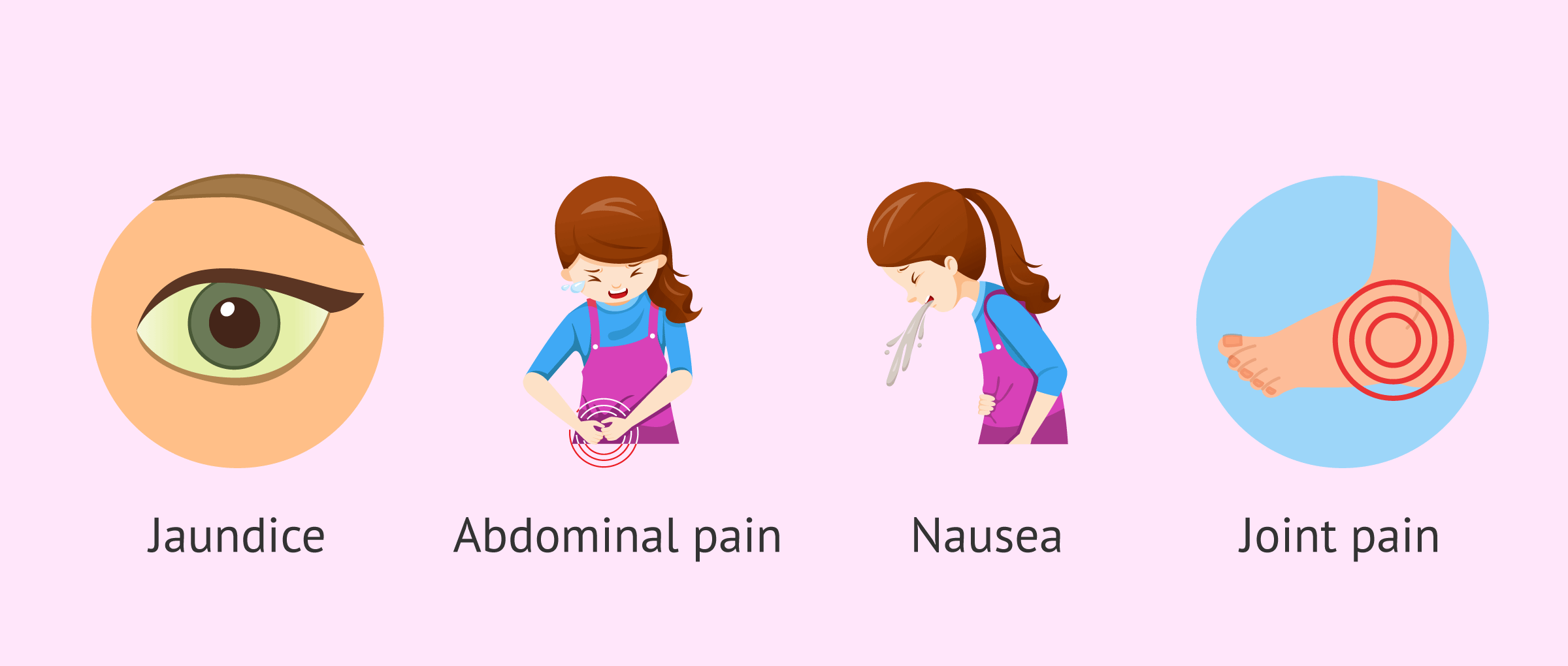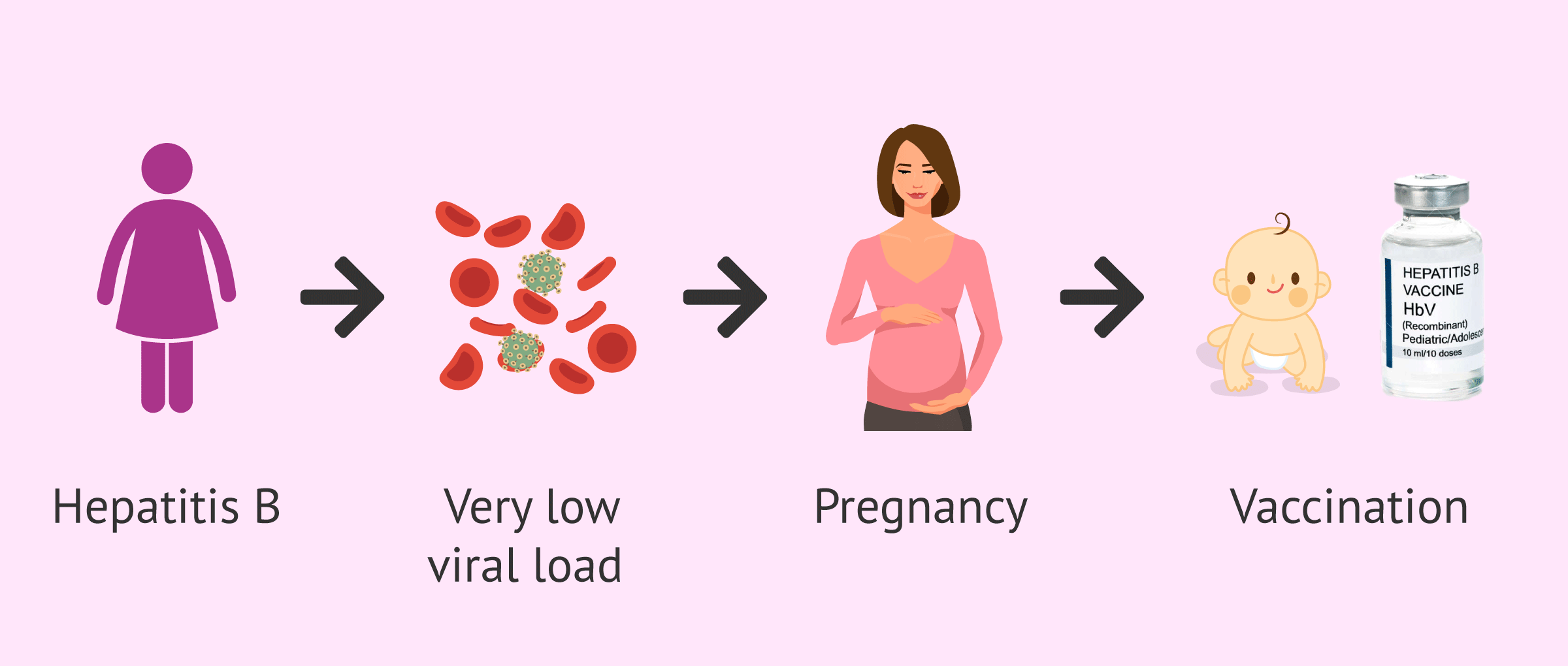Hepatitis is an inflammatory disease of the liver that can be chronic or acute and cause serious long-term consequences. This disease is caused by the hepatitis B virus (HBV) and can be transmitted through fluids such as blood, sexual contact and can also be transmitted vertically from mother to fetus.
Currently, there is a wide variety of assisted reproduction techniques such as in-vitro fertilization (IVF) and intracytoplasmic sperm injection (ICSI), which help us to solve many sterility and infertility problems. In case the male is seropositive for hepatitis B, it is best to perform a seminal lavage before using any reproductive technique.
Provided below is an index with the 7 points we are going to expand on in this article.
- 1.
- 1.1.
- 1.2.
- 2.
- 3.
- 3.1.
- 3.2.
- 3.3.
- 4.
- 4.1.
- 4.2.
- 4.3.
- 4.4.
- 5.
- 6.
- 7.
What is hepatitis B?
Hepatitis B is a viral disease that causes liver damage. This disease is caused by infection with the hepatitis B virus (HBV), a virus that is transmitted between people through contact with bodily fluids.
The prevalence of hepatitis B in the world is around 5% of the population, although the percentage of cases differs according to the geographical area.
There are two types of hepatitis B infection:
- Acute
- its duration is less than 6 months. However, an acute infection can lead to chronic hepatitis B infection.
- Chronicle
- lasts more than 6 months, since the immune system of the affected person is not able to fight the viral infection. Chronic hepatitis B can be present throughout life and even lead to other more serious diseases such as cirrhosis and/or liver cancer.
Several studies have concluded that if hepatitis B is contracted at an early age, there is an increased risk of developing chronic hepatitis B over time.
Causes
As mentioned above, hepatitis B is considered a sexually transmitted disease (STD), and the causative virus is transmitted from person to person through contact with bodily fluids. However, HBV is not transmitted by coughing as is the case with other viruses.
Specifically, the hepatitis B virus can be spread in 3 common ways:
- Sexual relations
- when unprotected sexual contact is maintained with a person infected with hepatitis B, either orally, through blood, semen or vaginal secretions.
- Sharing needles
- quite common among people who use drugs.
- Vertical transmission
- refers to pregnant women who are infected with the virus, as they can transmit hepatitis B to the fetus through the placenta and delivery.
In addition, accidental needle sticks from other people with blood on them or contact with blood through a wound can also lead to HBV transmission.
Symptoms
Clinical manifestations of hepatitis B usually appear a few weeks after infection or contact with the virus. These include:
- Yellowish coloration of the skin.
- Abdominal pain.
- Fever
- Loss of appetite.
- Nausea and vomiting.
- Joint pain.
In children, the symptoms of hepatitis B may go unnoticed or even not appear at all.
Diagnosis and treatment
The description of certain signs and symptoms of the patient may raise suspicion of possible hepatitis B. However, confirmation of the diagnosis will be made by serological criteria.
Therefore, a blood test will be necessary to determine the presence or absence of certain hepatitis B-associated serological markers:
- HBs Ag
- appears in the patient's plasma when at least 6 weeks have passed since exposure to the virus. It is the first hepatitis B marker.
- HBe Ag
- appears just after HBs Ag and is related to viral replication. Therefore, this marker reports the infectivity index. When the HBeAg concentration is elevated and/or appears together with HBsAg, there would be a high probability of infection.
- HBc Ac
- these are the antibodies that fight infection. Once hepatitis B has been cured, these antibodies to the virus persist
- Transaminases
- its concentration in the blood will be elevated if hepatitis B is present.
It is important to note that these serological markers are not the only ones for hepatitis B. Anti-HBs and anti-HBe antibodies are also indicative that hepatitis B has disappeared, but there was an infection in the patient.
Once hepatitis B has been diagnosed, the specialist will proceed to choose the best therapeutic option. There is no cure for the disease, but supportive and control treatment based on antivirals and interferon is usually administered.
Hepatitis B and pregnancy
Hepatitis B is not a disease that directly causes infertility, but it is important to follow some medical recommendations to attempt pregnancy. Therefore, hepatitis B does not affect a woman's ability to become pregnant, although there is a risk that the infection may be transmitted to the offspring.
Each of the situations is discussed below, as well as advice depending on whether the man, woman, or both have hepatitis B.
What happens when the male has hepatitis B?
When the couple arrives at the fertility clinic, both are tested for the presence of the hepatitis B virus in the blood of either partner.
In case the male is affected, there may be transmitted to the female by sexual contact and through semen, so it is important to determine if the virus is present before the necessary assisted reproduction treatment can be performed.
If the male has chronic hepatitis B, it is necessary to vaccinate the female first and then check if there is a correct immunization against the virus thanks to the vaccine. This is necessary both before starting assisted reproduction treatment and in a natural pregnancy.
If the virus is in the active phase, the virus will be present in semen, so it is necessary to perform a seminal lavage to ensure that the treatment is performed with virus-free spermatozoa. This minimizes the risk of infection.
Therefore, couples in which the man has hepatitis can have children through assisted reproduction thanks to seminal lavage, thus avoiding the transmission of the disease to the couple and the baby.
What if the woman has hepatitis B?
If the woman tests positive for hepatitis B serology, it can be more problematic, as there is a risk of vertical transmission of the virus to the fetus during pregnancy.
In this case, it is necessary to vaccinate the spouse to prevent him/her from contracting the disease. Afterward, the viral load in the blood must be measured in order to decide if the assisted reproduction technique can be performed or if it is necessary to wait until the viral load is lower.
When the viral load is non-existent or low, artificial insemination (AI) with the partner's semen or in vitro fertilization (IVF) can be performed. The choice of one fertility technique or another will depend on other factors such as the woman's age, tubal patency, oocyte quality, ovarian reserve, etc.
Once the woman gives birth to the baby, the newborn must be given immunoprophylaxis, i.e. vaccinated against hepatitis B and administered an HBV-specific immunoglobulin to protect him/her.
HIV-positive couple
If both partners are seropositive, i.e. infected with the hepatitis B virus, the recommendations to be followed are identical to when only the woman is affected. The only difference is that vaccination of the male partner is not necessary, since he is also seropositive.
In this situation, it will be necessary to wait until the infection in the woman remits or the viral load is reduced before attempting pregnancy. In addition, it will be convenient to perform seminal lavage in the male to carry out any assisted reproduction technique, either IVF or AI.
Assisted procreation, as any other medical treatment, requires that you rely on the professionalism of the doctors and staff of the clinic you choose. Obviously, each clinic is different. Get now your Fertility Report, which will select several clinics for you out of the pool of clinics that meet our strict quality criteria. Moreover, it will offer you a comparison between the fees and conditions each clinic offers in order for you to make a well informed choice.
However, there is no scientific evidence of a reduction in the pregnancy rate after IVF treatment in hepatitis B seropositive couples with respect to seronegative couples.
FAQs from users
What are the options for a man with hepatitis B to become a father?
Hepatitis B is a viral infection that primarily affects the liver. This virus is transmitted through contact with blood or other body fluids; therefore, there is a high risk of contracting the virus in babies born to mothers with hepatitis B.
A man with hepatitis B does not have problems conceiving naturally because he has this infection, i.e. infertility is not a symptom of any type of hepatitis. However, there are some risks to consider when conceiving a baby, either naturally or through fertility treatment. First of all, there is the risk of infecting a partner through unprotected sex and thus infecting the fetus.
To prevent the couple from becoming infected and, therefore, to ensure that they can have a healthy baby, the best thing to do is to vaccinate them. It is also advisable to resort to an assisted reproduction treatment in which a seminal lavage is performed, the objective of which is to eliminate the virus from the sample previously taken. Normally, several seminal lavages are performed on the same sample and this washed semen is frozen for later use in fertilization.
There is no specific treatment recommended for these couples; the ideal would be to perform a study to assess the fertility of both members and to determine the most appropriate treatment.
How can pregnancy be achieved if the man is healthy, but the woman has hepatitis B?
In the event that the woman is seropositive and the man is seronegative, it is always advisable to vaccinate the man against hepatitis B before attempting a pregnancy. It is not recommended to have unprotected sexual relations until it is verified that the man has acquired immunity against the virus.
In addition, if it is necessary to resort to assisted reproduction, any technique is discouraged until:
- Submit the infection.
- HBeAg antigens is negative, since if the HBeAg is positive it would mean that there is hepatitis B infection.
- Serum viral load less than 1 million copies/mL.
What does vertical transmission of hepatitis B mean?
Vertical transmission of hepatitis B refers to the spread of an infection or other disease from mother to child through the placenta or during delivery.
HBsAg is the first marker to appear in the serum of a hepatitis B infected person. In contrast, HBeAg corresponds to the replication of the virus. For this reason, when a woman presents both markers, the probability of transmitting the infection to her offspring is 65-90%.
On the other hand, these percentages are reduced to 5-30% when the woman only presents HBsAg.
What is the best treatment for hepatitis B?
Hepatitis B cannot be cured, although it may go away on its own after a period of time. However, this disease can be prevented by vaccination.
In addition, treatments are available to reduce the likelihood of developing liver disease and to prevent transmission to others. These treatment options include antiviral drugs and interferon injections. In more severe cases, liver transplantation may be an option.
Recommended readings
If you are interested in learning more about other STDs, we recommend you visit the following article: Sexually transmitted diseases (STDs) in men and women.
In addition, a possible solution for patients diagnosed with hepatitis B is to resort to assisted reproduction. If you want to continue reading about the different fertility treatments, don't forget to access this link: Assisted reproduction techniques: differences and complexity.
We make a great effort to provide you with the highest quality information.
🙏 Please share this article if you liked it. 💜💜 You help us continue!
References
Christian Trépo, Henry L Y Chan, Anna Lok. Hepatitis B virus infection. Lancet. 2014 Dec 6;384(9959):2053-63. doi: 10.1016/S0140-6736(14)60220-8.
Junaid Khan, Apurba Shil, Sanjay K Mohanty. Hepatitis B vaccination coverage across India: exploring the spatial heterogeneity and contextual determinants. BMC Public Health. 2019 Sep 12;19(1):1263. doi: 10.1186/s12889-019-7534-2.
Longfei Li, Linlin Wang, Chunyu Huang, Lianghui Diao, Yongnu Zhang, Xu Zhang, Jian Xu, Yong Zeng. Chronic hepatitis B infection alters peripheral immune response in women with reproductive failure. Am J Reprod Immunol. 2019 Mar;81(3):e13083. doi: 10.1111/aji.13083. Epub 2019 Jan 29.
Terence T Lao, Jennifer S M Mak, Tin-Chiu Li. Hepatitis B virus infection status and infertility causes in couples seeking fertility treatment-Indicator of impaired immune response? Am J Reprod Immunol. 2017 Apr;77(4). doi: 10.1111/aji.12636. Epub 2017 Jan 25.
Thad Wilkins, Richard Sams, Mary Carpenter. Hepatitis B: Screening, Prevention, Diagnosis, and Treatment. Am Fam Physician. 2019 Mar 1;99(5):314-323.
Weihua Liu, Ruiqin Han, Han Wu, Daishu Han. Viral threat to male fertility. Andrologia. 2018 Dec;50(11):e13140. doi: 10.1111/and.13140.
FAQs from users: 'What are the options for a man with hepatitis B to become a father?', 'How can pregnancy be achieved if the man is healthy, but the woman has hepatitis B?', 'What does vertical transmission of hepatitis B mean?' and 'What is the best treatment for hepatitis B?'.
Authors and contributors


More information about Cristina Algarra Goosman








iHello
Is it still possible to do an IVF procedure if the women is tested positive with hepB? or are there any procedure that a couple can do to concieve?
Thank you…
Hello Hopingforamiracle,
When a woman has hepatitis B, there is a risk of transmitting it to her offspring. It is therefore advisable to measure the viral load and wait until it is low enough to use an assisted reproductive technique, either artificial insemination (AI) or in vitro fertilisation (IVF).
I hope I have helped you.
Best regards.
Hi, my daughter is 3 months old and I just found out I am HIV positive. Is there any way that my daughter is also infected? please help me.
Hi Lauren,
The possibility of transmitting the infection in pregnancy is vertically, that is, through the blood connection between mother and daughter or through the passage through the vaginal canal. Since you do not know exactly when you contracted the virus, it would be advisable to perform diagnostic tests on your daughter to assess whether she has been infected or not.
Regardless, it is necessary to take precautionary measures so that if there is no contagion, it can be avoided in the future.
I hope I have helped you.
Best regards
Hi, my husband has hepatitis b, he is treated and in principle has a low viral load, can’t we try to have a baby naturally?
Hello Ella,
If one of the two partners has hepatitis b it is recommended that you get tested to establish the status of the disease. To know if there has been any contagion and the viral load present in the affected person or persons.
It would be interesting for you to get vaccinated to avoid infection through sexual intercourse when you try to have a child naturally. Another option is to undergo a reproductive treatment in which semen is washed to reduce the possibility of contagion.
I hope I have helped you.
Best regards.